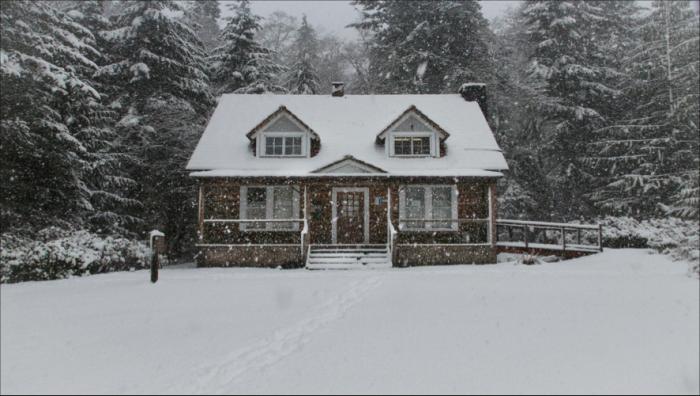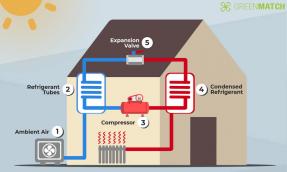
Living in in an older home in Massachusetts, I know how important it is to make sure your heating system is ready for winter. Nothing is worse than having your system break down in the middle of winter and either waiting a day or two for the tech to come by or paying a premium rate to get them there in a hurry. But we’re not going to talk about what you should do to keep your heater running in tip top shape. We’re going to talk about it running less often (in a good way).
A home energy audit, sometimes called a home energy assessment, is a service where someone analyzes your home to see where you can save energy and put more money in your pocket. The person performing the audit will replace your older light bulbs with energy efficient LED ones. They will also replace your old thermostat with a programmable thermostat, and set it up for you so you don't forget to turn the heat down when nobody’s home.
The light bulbs and the thermostat will start saving you money instantly. Think of replacing 75 watt light bulbs with 13 watt ones – you get the picture. They are going to do a few other things, too, in order to help you seal up your house for additional cost and energy savings. Ultimately, the goal is to seal up you house, so the heat doesn’t escape your house in the winter or sneak into your house during the summer.
That being said, the first thing the energy auditor is going to do is make sure your heater and water heater are drafting properly. Drafting is what makes the exhaust go up your exhaust pipe. Did you over notice that there is a small gap between you water heater and the exhaust pipe? That gap sucks in air from your basement and mixes with the exhaust in order for exhaust to travel more efficiently up the chimney. If there is not enough draft then you risk having the exhaust not go up the chimney and stay in your basement.
In an old house with drafty windows and gaps around your doors, it’s easier for the drafting to occur because there is fresh air from outside entering the house. When your house is sealed, it may be more difficult for drafting to occur. This can be fixed by cleaning out the chimney, but it is important to make sure your chimney is drafting properly regardless of what you do to your house in order to avoid carbon monoxide poisoning.
Want to make sure your chimney is drafting properly? Light a match, blow it out, and place it right next to the gap between the water heater and the exhaust. If you notice the smoke being sucked up the chimney then you have a proper draft. If the smoke is being blown away from the chimney then you have a problem. If you see a bunch of soot around the top of your water heater, then you don’t even need the match. Call the repairman ASAP.
Provided your chimney is up to snuff, which most of them are, the next thing the person will be doing is checking out your walls and ceilings with an infrared camera. The infrared camera will show the drafty areas in your house where the heat is escaping your house. This process is a lot more effective then just running your hands around the walls and windows to feel a draft. The best part about this is that you may only need to touch up a couple spots. Caulking and spray foam, anyone?
The next thing the auditor is going to do is what’s called a J-Load calculation. If you don’t know what a J-Load calculation is, you’re part of the majority. The J-Load calculation basically factors in what type of windows, siding, and insulation you have to see how much heat you’re losing (or in the summer, gaining).
This calculation is important because you may have insulated your home, or replaced your windows since you had your old heating system replace. What this means, is that you will probably be able to replace it with a much smaller system, lowering your installation cost, and saving you money every month by burning less fuel.
Bigger is better in many things. Bigger engines and more horsepower makes for faster cars, but bigger heating systems with more BTUs do not necessarily mean a warmer house. Just like the speed limit sets how fast you drive (Right?), the thermostat limits how warm your home will be. Driving fast may be fun, but unless you’re into Bikrham Yoga, you probably want your home at a reasonable temperature. Having heating system that’s too large for your home will create what is called short-cycling, which basically means in turns on and shuts off quickly. Besides being annoying, short-cycling also puts wear and tear on your system, shortening its lifespan and requiring more costly repairs.
The best part about having the energy audit, besides the light bulbs and thermostat, is that it will not cost you any money out of pocket (at least in Massachusetts. Many states have similar programs!). The service is paid for by the green energy charge on your electric bill. Massachusetts residents are eligible to get an energy audit every few years, depending on your electric and gas company. The person performing the audit will give you an analysis which includes things you can do yourself as well as recommendations for services like window and insulation installers.
- Filed Under: Energy
- ( 22946 ) views

I am a sales rep for Associated Energy Developers, located in Plymouth, MA. We specialize in commercial solar and wind projects both locally and internationally.
- ( 0 ) Ratings
- ( 0 ) Discussions
- ( 0 ) Group Posts
Reply/Leave a Comment (You must be logged in to leave a comment)
Connect with us!
Subscribe to our monthly newsletter:































Not a Member Yet? Register and Join the Community | Log in